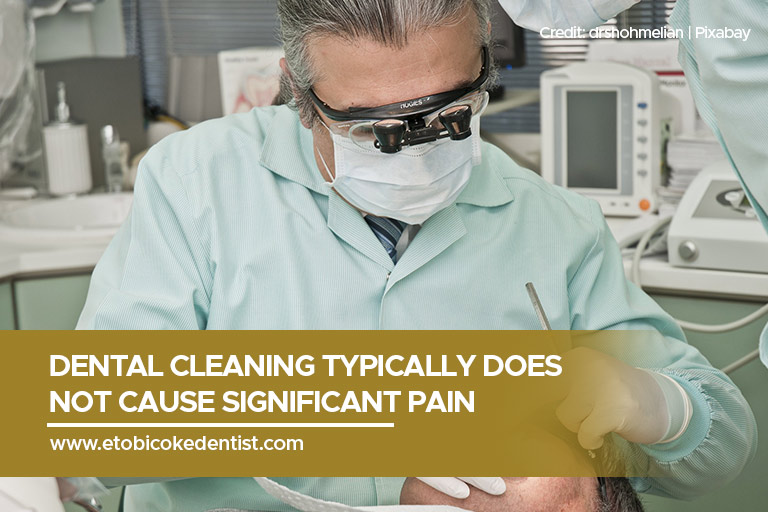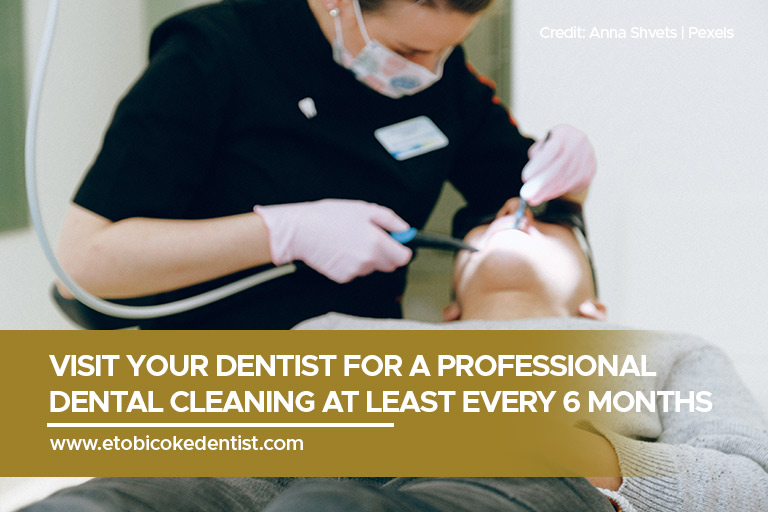Dental cleaning, also known as prophylaxis, is a routine procedure that involves the removal of plaque and tartar from teeth to maintain good oral health. While some people feel anxious about dental trips, avoiding routine dental cleaning may lead to serious dental issues.
However, knowing what to expect during a professional teeth cleaning might help you feel at ease.
Is Dental Cleaning Necessary?
Dental cleaning is performed by dental hygienists or dentists to maintain the health of teeth and gums. The procedure involves removing plaque and tartar build-up from the teeth and gums to prevent cavities, gum disease, and other dental problems.
Regular dental cleaning is essential for maintaining good oral health, but many people neglect this important aspect of dental care. Some people may feel that brushing and flossing are enough, but dental cleaning is necessary to remove the build-up of plaque and tartar that cannot be removed by regular brushing alone.
Visiting a dental clinic in Etobicoke for regular dental cleaning can also help to prevent more serious dental problems from developing. Dental professionals can detect early signs of gum disease, tooth decay, or oral cancer, which can be treated more effectively if detected early. So do not neglect your dental cleaning appointments and make sure to prioritize your dental health.
Do Dental Cleanings Hurt?

While dental cleanings are generally painless, some patients may experience discomfort during the procedure, especially if they have sensitive teeth or gums. However, the pain is usually minimal and can be managed with local anesthesia or numbing gel.
On the other hand, a deep dental cleaning may cause some discomfort due to the need to clean deep below the gum line. However, the dentist may apply local anesthesia to numb the area, making the procedure more tolerable.
Be sure to communicate with your dentist or dental hygienist if you experience any pain or discomfort during the procedure.
Can It Help Whiten My Teeth?
While dental cleanings are effective in improving the overall health of your teeth and gums, many people wonder if they can also help to whiten their teeth.
Before and After Dental Cleaning
Before a dental cleaning, your teeth may have visible stains or discoloration caused by food, drink, or tobacco use. However, after a professional dental cleaning, you may notice that your teeth look brighter and cleaner. This is because the cleaning process removes surface stains that can make your teeth appear dull or discoloured.
While dental cleanings can improve the appearance of your teeth, they are not a substitute for teeth whitening procedures. Professional teeth whitening treatments use special chemicals to penetrate the enamel and remove deep stains that cannot be removed by cleaning alone.
In conclusion, dental cleanings can help to improve the appearance of your teeth by removing surface stains and buildup. However, if you are looking for a dramatic improvement in the colour of your teeth, it is best to consult with your dentist about teeth whitening procedures.
How Often Should You Have Dental Cleaning?

Regular dental cleanings are essential for maintaining healthy teeth and gums. But how often should you schedule these cleanings? The Canadian Dental Association (CDA) recommends that you have a professional dental cleaning at least twice a year. However, some people may require more frequent cleanings based on their individual needs.
Factors such as your overall dental health, the amount of plaque buildup, and your risk for developing gum disease may affect how often you need a dental cleaning. Your dentist can help you determine how frequently you should schedule cleanings.
It is also crucial to consider dental cleaning costs when determining how often to schedule appointments. The cost of a dental cleaning can vary depending on factors such as location and the extent of the cleaning needed. Some insurance plans may cover the cost of cleanings, so check with your insurance provider to understand your coverage.
How Long Does a Dental Cleaning Take?
Regular dental cleaning is an essential part of oral hygiene, helping to prevent gum disease and tooth decay. However, many people wonder how long a dental cleaning takes and what tools are used during the process.
The length of a dental cleaning can vary depending on the individual’s oral health and the extent of any buildup of plaque and tartar. On average, routine cleaning can take between 30 minutes to an hour. However, if there is a more significant buildup or other issues that need attention, the cleaning may take longer.
Dental cleaning tools typically include a scaler to remove plaque and tartar from the teeth and a polisher to remove surface stains. The scaler is a handheld instrument that uses gentle vibrations to remove buildup without damaging the tooth enamel. The polisher is a small brush that rotates at high speed and uses a special paste to polish the teeth.
In addition to these standard tools, other instruments may be used as needed, such as a dental drill to remove cavities or a water pick to remove stubborn buildup in hard-to-reach areas.
What Should You Avoid After A Dental Cleaning?
Dental cleanings are an essential part of maintaining good oral health. Regular dental cleanings help prevent cavities, gum disease, and other dental problems. After a dental cleaning, it is important to take proper care of your teeth and avoid certain habits that can damage your oral health. Here are some of the things that you should avoid after a dental cleaning, with guidance from an Etobicoke dentist.
- Eating or Drinking Anything for an Hour
After a dental cleaning, it is important to avoid eating or drinking anything for at least an hour. This allows time for the fluoride treatment to be absorbed into your teeth and provides maximum benefit. Drinking water is okay, but avoid anything acidic or sugary.
- Brushing Too Hard
While it is important to brush your teeth twice a day, after a dental cleaning, it is essential to avoid brushing too hard. Brushing too hard can cause gum irritation, bleeding, and even damage to the enamel of your teeth. Use a soft-bristled toothbrush and brush gently.
- Smoking
Smoking is harmful to your oral health and can lead to many dental problems, including gum disease, tooth loss, and oral cancer. After a dental cleaning, it is important to avoid smoking for at least 24 hours to allow your mouth to heal.
After a dental cleaning, it is important to take good care of your teeth and avoid certain habits that can harm your oral health.
Book a Dental Cleaning Appointment Now!
Has it been more than 6 months since your last professional dental cleaning? Get in touch with us right away to set up a convenient time for a teeth cleaning and exam.
Call Dr. Mark Rhody Dentistry today at (416) 231-4281, or fill out our contact form to send us a message.
